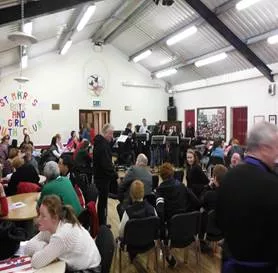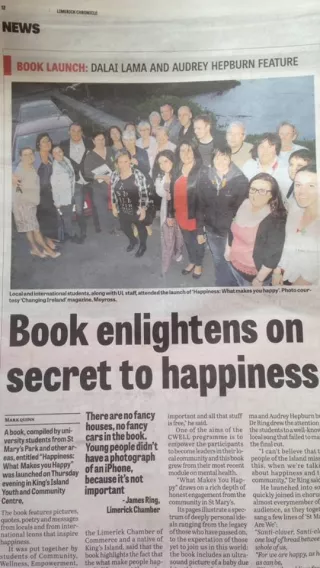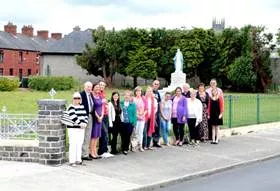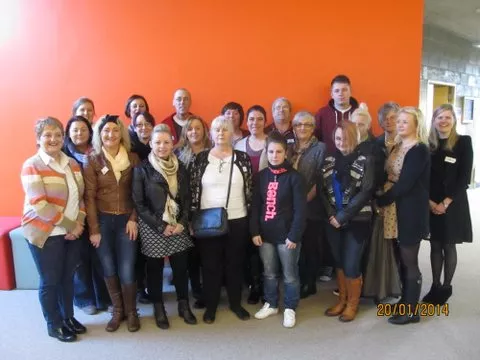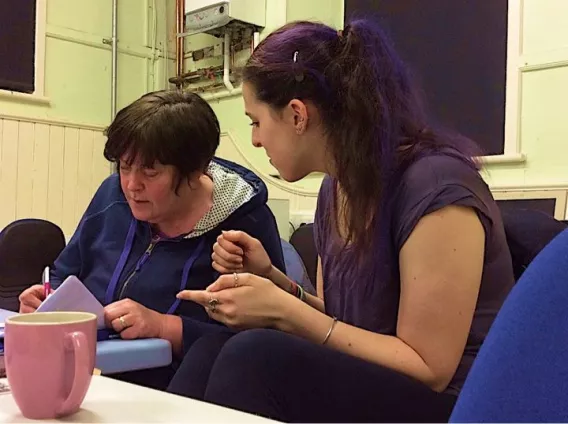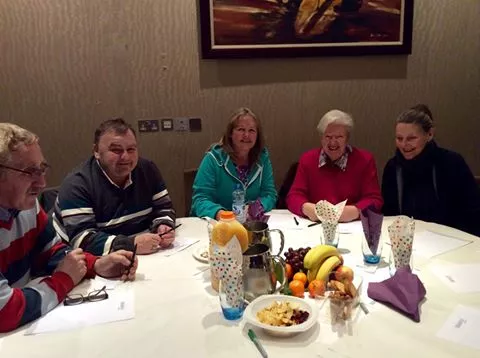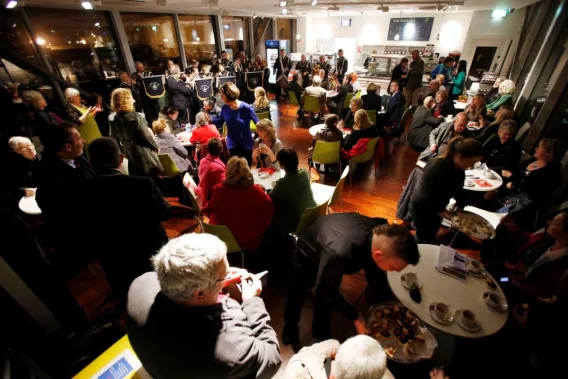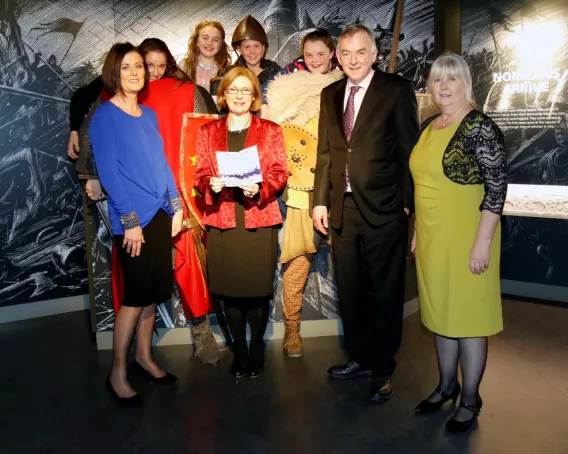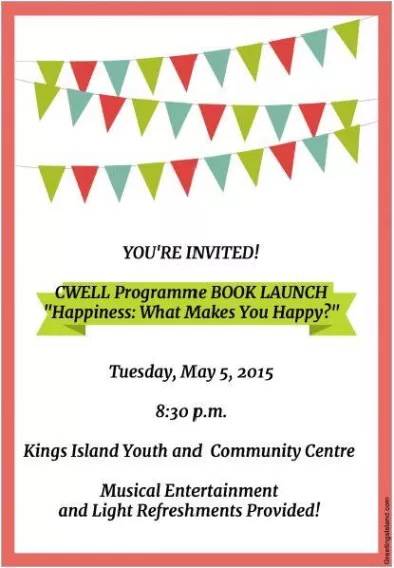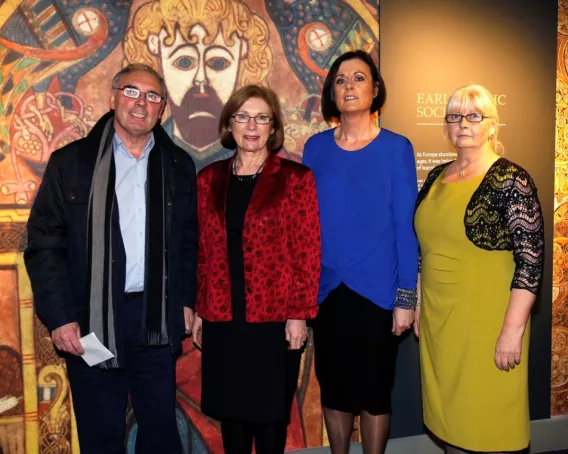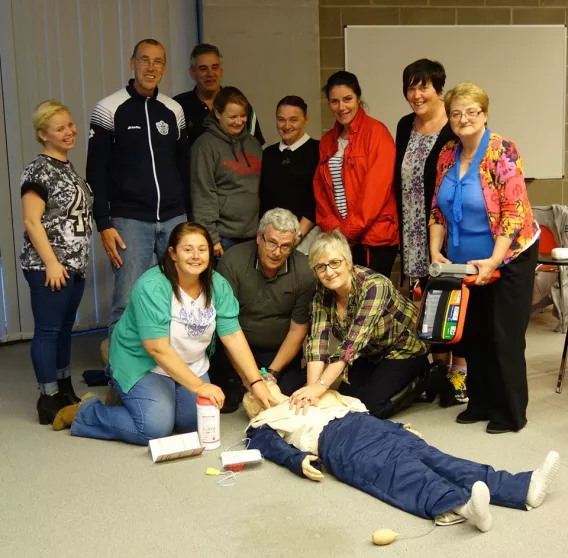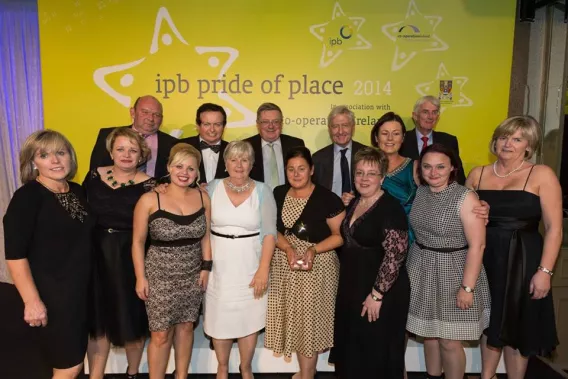Project
St Marys Community in partnership with the Faculty of Education and Health Sciences developed a co-authored Diploma programme in Community Wellness, Empowerment, Leadership and Life Skills (CWELL). The overall aim of the programme is to proactively address community health issues in a way that the building of healthy partnerships enhances existing strengths, fosters community resilience and leadership, contributing towards improving quality of life and the creation of healthy and sustainable communities.
The need to promote the principles and practice of community development in improving health and well-being for disadvantaged communities, and to explore mechanisms for effective, meaningful and sustainable community participation in decision-making related to health is identified. A number of national and local reports (CEC, 2006 Fitzgerald, 2007, Humphreys et al 2012) to the Limerick region highlight the need for community education initiatives in skills/strategies to improve health outcomes.
CWELL is offered as a partnership programme between staff from the University of Limerick and St Mary’s community. The CWELL steering group has representation from the local community, Limerick City Community Development Project (CDP), and the Health Service Executive (HSE)
Multi-methods (key informant interviews, focus groups, surveys) are used to gain feedback from community partners and CWELL students. Evaluations of the project from participants are carried out twice a year. Former UL Practicum and Study Abroad students on the project have very much enjoyed this perspective on Irish culture. Participant interviewees report that they appreciate the opportunity to talk about their experiences in Ireland. In 2014, CWELL was awarded the Healthy Ireland mark. In June 2014, CWELL was awarded the Healthy Ireland mark. In November 2014 CWELL received an Irish Pride of Place Award at the National Competition.
Learning
Activities will involve practical on-the-ground engagement with students from disadvantaged communities who are undertaking a Diploma programme on Community Wellness, Empowerment Life skills and Leadership (CWELL) programme. There are a number of elements to this: 1) Provide the practical on the ground mentoring supports to student on the CWELL programme 2) Contribute to the communication process Re: sharing information on relevant aspects of the CWELL programme with the wider community 3) Investigate opportunities within the local community (through voluntary organizations, support groups and networks etc.) for practical projects that may be undertaken by CWELL students in the course of their programme. Students on this Practicum project will be tasked with developing and recording a system of peer mentoring for students undertaking community based education
This project offers an opportunity to engage first hand in practice based projects with local communities. It offers grounded learning experiences that facilitate the exploration of social issues, support students to articulate their ideas to a range of audiences within different cultural frameworks and settings and provide opportunities to make substantial and positive contributions to society.
The academic project leader for this Practicum is Ms. Bernie Quillinan, Room HS3020, and Health Sciences Building. Email: Bernie.quillinan@ul.ie Practicum students will work with CWELL students, University of Limerick faculty, local residents and groups in St Marys Community in Limerick City and University of Limerick students under-taking co-operative and voluntary community placements.
All UL Practicum modules are assessed in two parts, comprising 50% each: Academic Assessment – one end of term assignment combining your practical knowledge of this project with the academic perspective on this topic. Practicum Assessment – your personal input into this project will be negotiated with you and the team. Following this plan, you will be assessed on your capacity to deliver on the project work packages for which you are responsible.
Research
This research is to undertake an evaluation on the impact of the CWELL programme taking into account specific outcomes, such as health literacy, application of knowledge to practice and personal and professional growth of programme participants (particularly the demonstration of leading and sustaining change).
This project will produce valuable data on the learning needs and support requirements of atypical students from an under-served community, as it strives to sustain healthier communities and community capacity building in predominantly disadvantaged communities. The research will identify elements of the programme that have been more successful and less successful for the enrolled students with a view to students being empowered as citizens to self-manage their lives and environment through acquisition of leadership skills and engagement in the building and enactment of a shared community vision. .
This project has been passed by the UL Ethics Committee and follows all ethical protocols associated with participant research. The joint Community and faculty Research group are engaged in on-going evaluations of the programme four times a year throughout the course of the programme.
Resources
